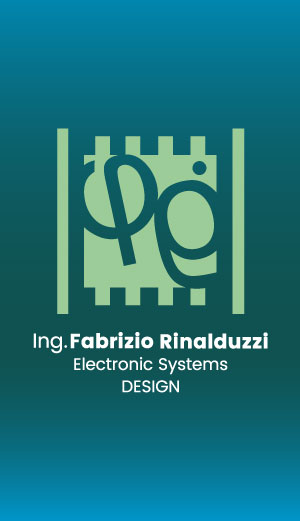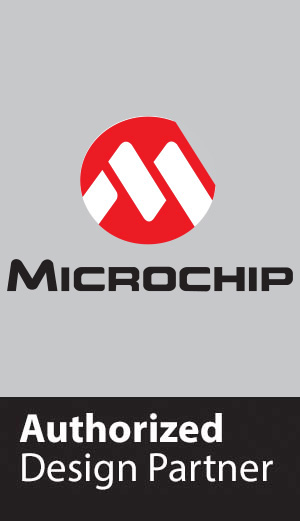How to use the PWM lines
This article illustrates how to use the SPI interface on the Acme Systems Linux boards based on Microchip SAMG2x, SAMA5D3x and SAMD2x CPUs
PWM Kernel modules
Two drivers are provided by Atmel in the Kernel mainstream to generate the PWM signals
- pwm-atmel.c which uses the PWM controller
- pwm-atmel-tcb.c which uses the Timer Counter Block
These drivers exposes a sysfs user space interface to manage the PWM signals.
Driver for Timer Counter Block PWB
Device Drivers --->
[*] Pulse-Width Modulation (PWM) Support --->
<*> Atmel TC Block PWM support
Related links
- Using PWMs with the sysfs interface
- pwm-atmel.c driver source
- pwm-atmel-tcb.c driver source
- Device tree binding
Using the PWM sysfs user space interface
The PWM sysfs at startup interface will create a directory called /sys/class/pwm/pwmchip0.
For any PWM line you want to use you have to export it.
~# echo 0 > /sys/class/pwm/pwmchip0/export ~# echo 1 > /sys/class/pwm/pwmchip0/export ~# echo 2 > /sys/class/pwm/pwmchip0/export ~# echo 3 > /sys/class/pwm/pwmchip0/export ...
To use again that line ad generic GPIO you can unexport it:
~# echo 0 > /sys/class/pwm/pwmchip0/unexport ~# echo 1 > /sys/class/pwm/pwmchip0/unexport ~# echo 2 > /sys/class/pwm/pwmchip0/unexport ~# echo 3 > /sys/class/pwm/pwmchip0/unexport ...
For any exported channel a directory called pwmX wil be created with the following structure:
/sys/class/pwm/pwmchip0/pwmX/
|-- duty_cycle (r/w) duty cycle (in nanoseconds)
|-- enable (r/w) enable/disable PWM
|-- period (r/w) period (in nanoseconds)
|-- polarity (r/w) polarity of PWM
|-- power
`-- uevent
The follow example illustrate how enable a PWM signale with a period of 1mS with a 0.5mS of duty cycle:
~# echo 1000000 > /sys/class/pwm/pwmchip0/pwm0/period ~# echo 500000 > /sys/class/pwm/pwmchip0/pwm0/duty_cycle ~# echo 1 > /sys/class/pwm/pwmchip0/pwm0/enable
PWM
Acqua
pwm0: pwm@f002c000 {
pinctrl-names = "default";
pinctrl-0 = <
&pinctrl_pwm0_pwmh0
&pinctrl_pwm0_pwml0
&pinctrl_pwm0_pwmh1
&pinctrl_pwm0_pwml1
&pinctrl_pwm0_pwmh2
&pinctrl_pwm0_pwml2
&pinctrl_pwm0_pwmh3
&pinctrl_pwm0_pwml3
>;
status = "okay";
};
pinctrl@fffff200 {
board {
pinctrl_pwm0_pwmh0: pwm0_pwmh0 {
atmel,pins =
< AT91_PIOB 0 AT91_PERIPH_B AT91_PINCTRL_NONE >;
};
pinctrl_pwm0_pwml0: pwm0_pwml0 {
atmel,pins =
< AT91_PIOB 1 AT91_PERIPH_B AT91_PINCTRL_NONE >;
};
pinctrl_pwm0_pwmh1: pwm0_pwmh1 {
atmel,pins =
< AT91_PIOB 4 AT91_PERIPH_B AT91_PINCTRL_NONE >;
};
pinctrl_pwm0_pwml1: pwm0_pwml1 {
atmel,pins =
< AT91_PIOB 5 AT91_PERIPH_B AT91_PINCTRL_NONE >;
};
pinctrl_pwm0_pwmh2: pwm0_pwmh2 {
atmel,pins =
< AT91_PIOB 8 AT91_PERIPH_B AT91_PINCTRL_NONE >;
};
pinctrl_pwm0_pwml2: pwm0_pwml2 {
atmel,pins =
< AT91_PIOB 9 AT91_PERIPH_B AT91_PINCTRL_NONE >;
};
pinctrl_pwm0_pwmh3: pwm0_pwmh3 {
atmel,pins =
< AT91_PIOB 12 AT91_PERIPH_B AT91_PINCTRL_NONE >;
};
pinctrl_pwm0_pwml3: pwm0_pwml3 {
atmel,pins =
< AT91_PIOB 13 AT91_PERIPH_B AT91_PINCTRL_NONE >;
};
};
};
Aria
pinctrl@fffff400 {
pwm0 {
pinctrl_pwm0: pwm0-0 {
atmel,pins =
< AT91_PIOC 18 AT91_PERIPH_C AT91_PINCTRL_NONE
AT91_PIOC 19 AT91_PERIPH_C AT91_PINCTRL_NONE
AT91_PIOC 20 AT91_PERIPH_C AT91_PINCTRL_NONE
AT91_PIOC 21 AT91_PERIPH_C AT91_PINCTRL_NONE >;
};
};
};
pwm0: pwm@f8034000 {
pinctrl-names = "default";
pinctrl-0 = <&pinctrl_pwm0>;
status = "okay";
};
Arietta
pinctrl@fffff400 {
pwm0 {
pinctrl_pwm0: pwm0-0 {
atmel,pins =
< AT91_PIOB 11 AT91_PERIPH_B AT91_PINCTRL_NONE
AT91_PIOB 12 AT91_PERIPH_B AT91_PINCTRL_NONE
AT91_PIOB 13 AT91_PERIPH_B AT91_PINCTRL_NONE
AT91_PIOB 14 AT91_PERIPH_B AT91_PINCTRL_NONE >;
};
};
};
Credits
Many thanks to Nicolas Ferre and Boris Brezillon for their help.

Sergio Tanzilli
Systems designer, webmaster of www.acmesystems.it and founder of Acme Systems srl
Personal email: tanzilli@acmesystems.it
Web pages: https://www.acmesystems.it --- https://www.acmestudio.it
Github repositories: https://github.com/tanzilli --- https://github.com/acmesystems
Telegram group dedicated to the Acme Systems boards: https://t.me/acmesystemssrl
Systems designer, webmaster of www.acmesystems.it and founder of Acme Systems srl
Personal email: tanzilli@acmesystems.it
Web pages: https://www.acmesystems.it --- https://www.acmestudio.it
Github repositories: https://github.com/tanzilli --- https://github.com/acmesystems
Telegram group dedicated to the Acme Systems boards: https://t.me/acmesystemssrl





